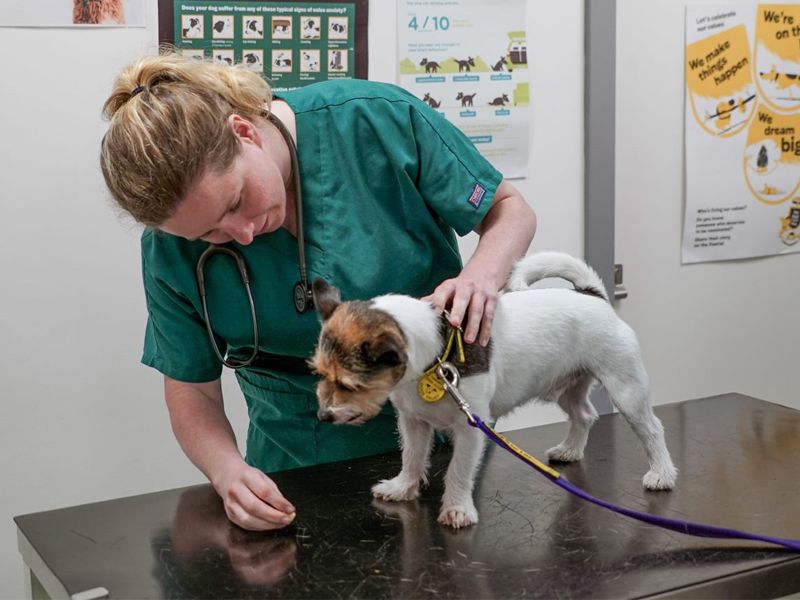Parvovirus: symptoms, treatment, and prevention
Parvovirus is a dangerous and highly contagious virus that primarily affects dogs, especially puppies.

Parvovirus is a dangerous and highly contagious virus that primarily affects dogs, especially puppies.
Here’s everything you need to know about parvovirus:
- how it spreads
- how to recognise the symptoms
- how it’s treated
- most importantly, how to prevent it.
What is parvovirus?
Canine parvovirus, commonly known as ‘parvo’, attacks a dog’s immune system and damages the lining of the gut. It’s particularly dangerous for puppies as their immune systems are still developing, making them more vulnerable to the virus.
Parvovirus can be life-threatening if not treated quickly, so it’s essential to act fast.
What are the symptoms of parvovirus?
Parvovirus symptoms usually appear within three to seven days after a dog is exposed to the virus.
Common signs to watch for include:
- low energy and lethargy
- loss of appetite
- severe diarrhoea (often foul-smelling and may be bloody)
- vomiting.
If you notice any of these signs, contact your vet as soon as possible. Early intervention increases the chances of successful treatment.
How do I know if my dog has parvovirus?
If your dog is showing symptoms of parvovirus, contact your vet immediately. Your vet can perform tests to confirm whether parvovirus is the cause of the symptoms.
Can parvovirus be treated?
Unfortunately, there’s no specific cure for parvovirus. However, supportive care can be effective. The goal of treatment is to manage the symptoms and help the dog’s body fight off the virus.
- Hospitalisation is usually needed, including intravenous fluids to keep the dog …
Can parvovirus kill my dog?
Yes, parvovirus can be fatal, particularly in puppies, or adult dogs with compromised immune systems. Early diagnosis and treatment are critical. The virus progresses quickly, so don't delay in getting veterinary care if you notice symptoms.
How do I prevent parvovirus?
Prevention is far better than treatment when it comes to parvovirus, so regular vaccination is the best way to protect your dog from the virus. Puppies typically receive vaccinations starting at six to eight weeks old, with boosters given throughout their life. Even if your dog …
...How is parvovirus spread?
Parvovirus is highly contagious. Unfortunately, infected dogs shed the virus in their poo even before showing any symptoms, and the virus can then survive on objects, surfaces, or in the environment for months or even years. This makes it easy for other dogs to become infected.
T…
...Is parvovirus dangerous to humans?
The good news — parvovirus doesn’t pose a risk to humans. It’s a dog-specific virus, so you don’t have to worry about catching it yourself. However, it’s important to be especially cautious after handling infected animals to avoid spreading the virus to other dogs. Always …
...The bottom line
Parvovirus is a dangerous and highly contagious virus that requires quick action. Prevention by regular vaccinations and early treatment are key to keeping your dog safe from this potentially fatal virus.
If you think your dog may have caught parvovirus, contact your vet immediately. With early intervention and hospitalisation, many dogs recover fully.
If you have any concerns about your dog’s health or vaccination schedule, reach out to your vet for guidance.
Related articles



